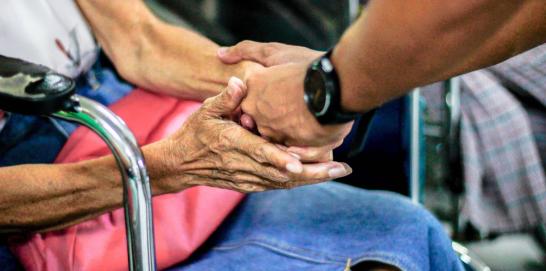When talking about Corporate Social Responsibility (CSR) endeavours, one might picture activities like tree-planting, volunteering at animal shelters, or contributing to orphanages. While these are admirable, Malaysia's CSR scene frequently exhibits a pattern of short-lived and sporadic efforts. Consequently, beneficiaries find themselves dependent on transient initiatives from various companies, making sustainability and continuity a formidable challenge when supporting underprivileged communities.
However, I would like to highlight two (2) slightly unconventional approaches to crafting CSR initiatives and their potential for leaving a lasting impact on the underserved populations.
- CRAFTING INCLUSIVE AND PRACTICAL CSR INITIATIVES FOR SOCIETAL UPLIFTMENT
While businesses aim to enhance society through their products and services, certain segments inevitably fall through the cracks. Circumstances such as poverty or addiction can lead to inadequate access to resources enjoyed by the broader society. With strategic investment and thoughtful programme design, I firmly believe that CSR initiatives can become a powerful mechanism for uplifting these communities over the long term, enabling them to participate effectively in the society that businesses serve. The key to achieving this lies in shaping CSR initiatives towards sustainable livelihood improvement.
A great example of this approach is "Back to Society" programme by Yayasan TM (YTM) at Jasin Prison & Correctional Facility in Melaka. This initiative educates inmates about the aquaculture industry, equipping them with practical skills to reintegrate into the society.
Since its inception and the installation of the prison's aquaculture training pool in 2022, remarkable outcomes have been observed:
- Successful breeding of 6000 kilograms of tilapia.
- Formation of a supply chain involving three government agencies, utilising tilapia sales revenue for reinvestment and enhancements of the prison facility.
Most significantly, the programme has transformed its most essential stakeholders – the participants themselves:
- According to a Department of Agriculture survey, 26 participants started their own fish farms upon release.
- 37 participants are now employed as fish farmers by local companies.
- 80 participants have ventured into the agricultural industry.
The "Back to Society" programme embodies the timeless adage, "Give a man a fish, and you feed him for a day; teach a man to fish, and you feed him for a lifetime." By focusing on practicality and relevance, CSR initiatives enable businesses to fulfil their responsibility by benefiting all societal strata, including those often overlooked or stigmatised.
- FOSTERING COLLABORATION FOR WIDESPREAD IMPACT
Helen Keller once said, 'Alone we can do so little, together we can do so much'. This quote resonates deeply with us at YTM because we have personally experienced the power of collaboration in amplifying our impact.
YTM actively seeks to create networks of support, exemplified by our TM Reaching Out Volunteers (TMROVers) nationwide and strategic partnerships with government agencies such as the National Disaster Management Agency (NADMA), GLC Demi Rakyat & Negara (GDRN), and Istana Negara. These collaborations have proven instrumental in expanding the reach of our CSR initiatives:
- During the 2022 monsoon floods, our TMROVers and Rakan NADMA distributed over RM420,000 worth of relief assistance through 11 humanitarian NGOs, providing aid to over 20,000 affected individuals.
- Through a Community Based Disaster Risk Reduction and Management Programme (CBDRRM), YTM and Istana Negara jointly enhanced public awareness of disaster preparedness. Together, we reached an impressive 458 community members, primarily women and teenagers.
- YTM is also collaborating with NADMA to train its personnels on crisis and disaster preparedness, ensuring better safety in times of need.
These CSR approaches may not be revolutionary, but they were drawn from fundamental human tendencies: the innate desire to share knowledge and collaborate.
By embracing these inclinations and leaning into our most human traits, companies can embody the true essence of CSR and make a sustainable, meaningful impact on the communities they serve; beyond what our ordinary business processes are made for.
Transforming CSR: Sustainable Strategies for Empowering Underserved Communities
By Ainol Shaharina Sahar, Director of Yayasan TM
Article Summary:
In the realm of Corporate Social Responsibility (CSR), ad-hoc initiatives are common. While still admirable, these short-lived and sporadic efforts often leave underprivileged communities dependent on transient support initiatives, lacking continuity and making sustainable support a challenge. To combat this, we are shining the spotlight on two slightly unconventional approaches to CSR:
Crafting Inclusive and Practical CSR Initiatives: CSR can uplift communities by focusing on sustainable livelihood improvement. Yayasan TM's "Back to Society" program at Melaka's Jasin Prison is a prime example, educating inmates about aquaculture and enabling their reintegration into society. The program has led to successful breeding, supply chain development, and transformed participants, promoting self-sufficiency.
Fostering Collaboration for Widespread Impact: Collaboration amplifies CSR's reach and impact. Yayasan TM collaborates with various organizations and government agencies, such as NADMA and Istana Negara. These partnerships have facilitated disaster relief, public awareness initiatives, and personnel training, showcasing the power of collective efforts.
By embracing these approaches, businesses can turn CSR responsibilities into more meaningful, lasting initiatives – extending our impact beyond ordinary business processes.






